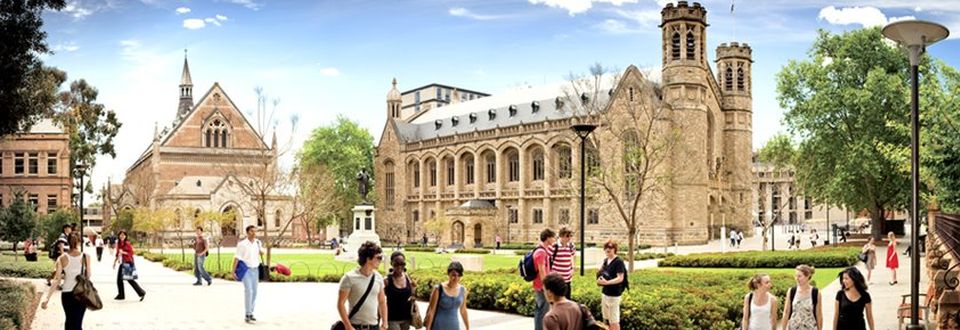The South Australian Law Reform Institute (SALRI) is examining the role and operation of Powers of Attorney in SA and whether the current laws that apply to Enduring Powers of Attorney (EPOAs) are effective in practice to protect vulnerable individuals, especially from financial abuse.
SALRI is an independent non-partisan law reform body based at the Adelaide University Law School. The SA Attorney-General supports SALRI undertaking this reference.
My colleague Dr Sylvia Villios of Adelaide Law School has asked if Murrays Legal would promote the invitation by SALRI for responses to this reference. Responses close on 4 September 2020. Dr Villios’ contact details are at the end of this article.
Enduring powers of attorney
EPOAs allow individuals (‘principals’) to plan for their future by identifying clear legal arrangements for their financial affairs which will take affect when they lose their decision-making capacity. They enable principals to appoint a trusted person (an attorney) in anticipation of losing decision-making capacity and provide a mechanism by which individuals can control their future. EPOAs have been described as ‘an important expression of autonomy’.
The operation of POAs is governed by the Powers of Attorney and Agency Act 1984 (SA) (POA Act) and aims to ensure vulnerable individuals are protected.
SALRI has heard, consistent with wider research, of concerns over the misuse of POAs and the operation of the present law, as well as the existing civil and criminal law remedies to prevent and address misuse and exploitation.
A number of issues arise including ensuring the effective and practical operation of POAs; witnessing; a POA Register; the protection of principals; the misuse of POAs and financial exploitation (especially of the elderly and persons with a cognitive impairment); the definition and assessment of capacity; the intersection of legal and medical roles; the reporting of suspected misuse (an issue raised to SALRI by the AMA) and the utility of present civil and criminal law remedies.
SALRI is committed to an active and inclusive consultation process and is keen to hear from interested parties and the community as to the operation of the present law and views as to potential law reform options. Subject to ongoing COVID-19 restrictions, SALRI also hopes to host roundtable consultation sessions with interested parties to discuss the various issues involved in Adelaide, Berri, Mount Gambier, Port Lincoln and Port Pirie.
More information about this reference, including the consultation questions, can be found on the YourSAy site: https://yoursay.sa.gov.au/decisions/role-and-operation-of-powers-of-attorney/about. Further information regarding this reference can be found in the fact sheets and terminology reference list on the YourSAy site.
SALRI welcomes any comments from interested parties or individuals to this topical and important reference. This may be by:
- Filling out any of the surveys on the YourSAy site: https://yoursay.sa.gov.au/decisions/role-and-operation-of-powers-of-attorney/about:
- Sending an email or written submission to salri_poa@adelaide.edu.au
- Arranging to speak to SALRI by sending a request to salri_poa@adelaide.edu.au
The closing date for comments is 5pm, Friday 4 September 2020.
Please feel free to forward this email to your networks and please get in touch at salri_poa@adelaide.edu.au if you have any queries.
NSW Law Reform Commission Report 145
This Review of the [NSW] Guardianship Act 1987 of May 2018 recommended [4.1] an Assisted Decision-Making Act to establish a framework for assisted decision-making in NSW that would replace the Guardianship Act 1987 (NSW) and the enduring power of attorney provisions in the Powers of Attorney Act 2003 (NSW).
My negative comments on it, confined to the issue of bankruptcy and incapacity, are found at Guardianship and bankruptcy – NSW law reform report misses the point?
More details about SALRI
SALRI is an independent non-partisan law reform body based at the Adelaide University Law School. It is established under an agreement between the State Attorney-General, the University of Adelaide and the Law Society of South Australia. SALRI conducts inquiries into areas of law. The areas of law examined by SALRI are determined by the expert SALRI Advisory Board and may also be at the request of the Attorney-General or other parties. SALRI examines how the law works in South Australia and elsewhere (both in Australia and overseas), conducts multidisciplinary research and consults widely with the community, interested parties and experts. Based on the research and consultation that it conducts during a reference, SALRI then makes reasoned recommendations to the State Government so that the Government and Parliament can make informed decisions about any changes to relevant law and/or practice. SALRI’s recommendations may be acted upon and accepted by the Government and Parliament. However, any decision on accepting a recommendation from SALRI is entirely an issue for the Government and/or Parliament.
When undertaking its work, SALRI has a number of objectives. These include identifying law reform options that would modernise the law, fixing identified problems in the law, consolidating areas of overlapping law, removing unnecessary laws, or, where desirable, bringing South Australian law into line with other States and Territories.
Dr Sylvia Villios
Senior Lecturer
HDR Convenor, Faculty of the Professions
Adelaide Law School
The University of Adelaide, AUSTRALIA 5005
Phone: 61 8 83137223
Fax: 61 8 8313 4344
Email Address: sylvia.villios@adelaide.edu.au



